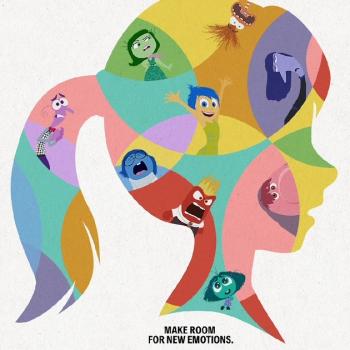Loving-kindness and Compassion are two attitudes that we can develop. Learning to embody these attitudes is a really meaningful way to live your life and they can bring us a lot of benefit, both internally and externally. The Buddha said that developing these attitudes is “the most noble way of living in this world.”
I think that’s true. I think we get so caught up thinking about mindfulness and attention that we sometimes lose sight of the other things that matter. Connecting with other people is important. Having harmony with the world around you is important. Having love and compassion for yourself is important too.
I’ve been reading “Buddhism for Beginners” by Thubten Chodron. I’m helping to facilitate a class that’s studying this book soon. I think that no matter how much experience we have we can always get something out of going back to these fundamental and basic teachings.
In the book, she uses the word “love” as the translation for “Metta.” It took my by surprise at first, but I think it’s fine. Usually this term is translated as “loving-kindness”, “loving-friendliness”, or simply “kindness.”
Kindness is usually what I prefer.
She says, “Love is the wish for all sentient beings (any being with a mind who is not yet fully enlightened) to have happiness and its causes. Compassion is the wish for them to be free of suffering and its causes. We work over time to cultivate these feelings towards all beings equally – ourselves, those we know and those we don’t.”
So, in short, love is wanting to lift people up. Compassion is wanting to save them. That’s how I see it. Love is where I want you to succeed and be happy. Compassion is where I want you to suffer less. These two are tied together, but I think it helps to remind ourselves that these are separate attitudes. A person can be really skilled at embodying one and not the other.
These attitudes help us and help others. They make us feel connected to one another. They make us feel less isolated and more positive. And when the people around you can see that you’re loving and compassionate, they like it. These qualities help us strengthen our bonds of affection and community. And they help us live an ethical life. It’s easier to be virtuous if you’re trying to cultivate love and compassion. A life of virtue comes more naturally if this groundwork is there, if our hearts and minds are coming from a place of compassion.
It’s easier to embody these qualities when we realize that everyone we encounter has many of the same struggles that we do. When we remind ourselves that even the most wealthy and powerful among us struggle to be happy, it can be easier to feel positive feelings toward them. The richest man in the world hasn’t been able to find happiness in this world, so he’s going to space. At least that’s how I see it. Even he couldn’t make a marriage work. That shows some level of unhappiness. We all have many of the same struggles.
Thubten Chodron says, “Each sentient being wants to be happy and to avoid suffering as intensely as we do. Continually familiarizing our mind with this view deflates the judgmental, critical mind that loves to pick out faults in others.”
I’d like to make it even simpler than that and say we should remember that other people are people too. Everyone has needs and desires like we do. We can just sort of lose sight of that at times.
The Dalai Lama said, “If you want to be selfish, be wisely selfish. Care for others!”
I think that’s really good advice. Giving in to our selfishness all the time and isolating ourselves from others doesn’t serve us very well. It could seem, at first glance, that just being selfish all the time is the way to be happy. That kind of happiness is fleeting. We are social beings. Connection with others is so important and love and compassion are the ways to make those connections.
======================================
if you’re interested in “Buddhism for Beginners” by Thubten Chodron you can buy it here:











